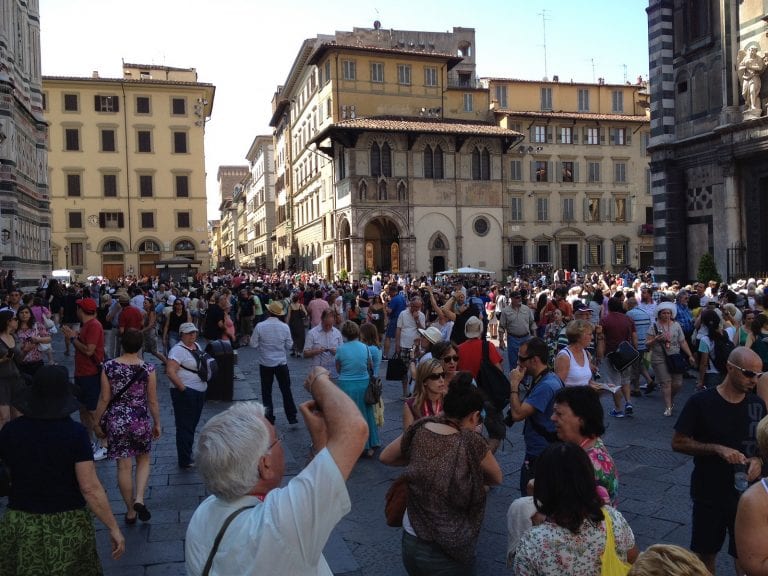In collaboration with our colleagues at the Center for Responsible Travel, on World Tourism Day—September 27th—the International Institute of Tourism Studies gathered industry leaders from around the world to share their approaches to the vexing challenges that stem from overtourism.
The forum, Overtourism: Seeking Solutions, was a great success in terms of attendance, media coverage and the sharing of ideas for possible pathways forward. As all presenters stressed, overtourism stems from a complex set of challenges; solutions will need to be multi-faceted and site-specific.
Francesca Street—who interviewed three of our panelists for her CNN feature Can the World Be Saved from Overtourism?—summarized the key takeaway as follows: “Speakers agree that government, locals and tourism companies working together is the best recipe for success. Events such as the World Tourism Day Forum also allow for cross-pollination and sharing of ideas on a wider scale."
Johanna Jainchill, in her Travel Weekly story Experts Talk Threat of Overtourism and Possible Solutions, said: "Among the clearest takeaways from the event was that governments worldwide need to step up and recognize they are the first line of defense in saving their historical cities and natural treasures from being "loved to death."
A few additional takeaways...
- Recognize the tipping point: More isn't always better. Determine maximum capacity for your destination and monitor social media to determine whether it's on traveler hot lists.
- Plan ahead: Make tourism part of comprehensive urban, regional and destination plans.
- Stay flexible and adaptable: What works for historic sites doesn't necessarily work for beach communities, for example. Needs differ and change over time.
- Rethink good governance and management: DMOs have a vital role to play beyond marketing; they need to participate in the sustainable management of destinations.
- Redirect visitors: Encourage visitors to travel smarter, to seek out hidden gems and to contribute to the protection of the places they visit.
For those unable to attend the forum in person or via livestream, we've posted video recordings of the entire day on the International Institute of Tourism YouTube playlist.

